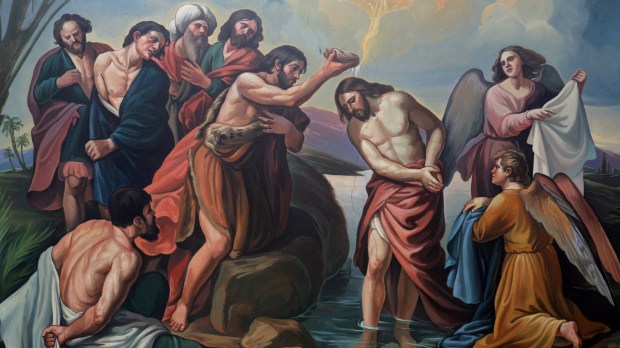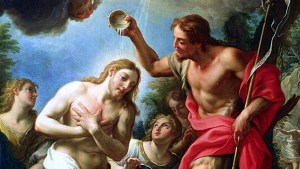When Jesus was baptized by St. John the Baptist, it wasn’t just any body of water, or puddle, but the Jordan river. This is significant, as this spot wasn’t random, but has profound biblical symbolism.
When the people of Israel were led to the “Promised Land,” they had one final hurdle to overcome: the Jordan river.
The entire nation had to cross the Jordan river in order to claim the land that God had marked out for them. This action is narrated in the book of Joshua.
So Joshua said to the Israelites, “Come here and listen to the words of the Lord, your God.” He continued: “By this you will know that there is a living God in your midst: he will certainly dispossess before you the Canaanites, Hittites, Hivites, Perizzites, Girgashites, Amorites, and Jebusites. The ark of the covenant of the Lord of the whole earth will cross the Jordan before you. Now choose twelve men, one from each of the tribes of Israel. When the soles of the feet of the priests carrying the ark of the Lord, the Lord of the whole earth, touch the waters of the Jordan, it will cease to flow; the water flowing down from upstream will halt in a single heap.
Joshua 3:9-13
The people then followed Joshua across the Jordan river and were saved from their enemies and inherited the Promised Land.
Jesus is the New Joshua
Jesus’ name in Hebrew is Yeshua, which is a form of the name “Joshua.” Jesus then becomes the “New Joshua,” leading the People of God across the New Jordan, through the waters of baptism.
The Catechism of the Catholic Church makes this connection explicit.
Baptism is prefigured in the crossing of the Jordan River by which the People of God received the gift of the land promised to Abraham’s descendants, an image of eternal life. The promise of this blessed inheritance is fulfilled in the New Covenant.
CCC 1222
Jesus’ baptism reminds us that everything is important in the Bible, even the most minute details of a location. It all points to deeper spiritual mysteries that are active in our own lives today.


